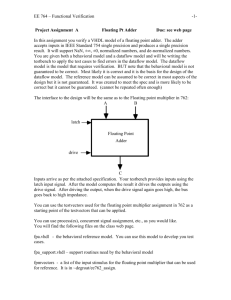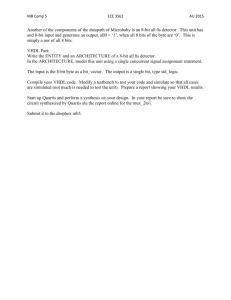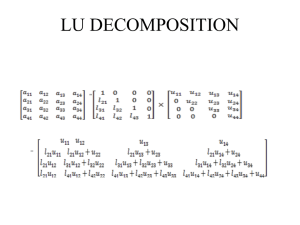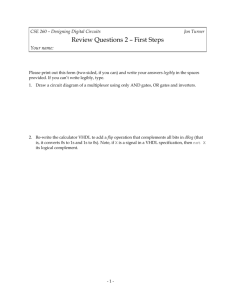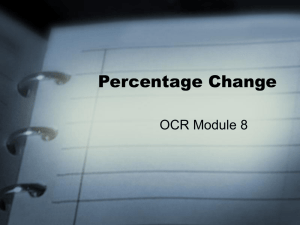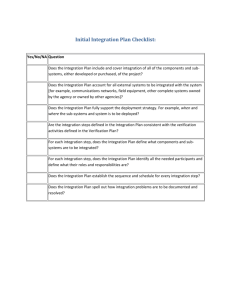ECE764/Project 2 FPM/FPM assgn
advertisement
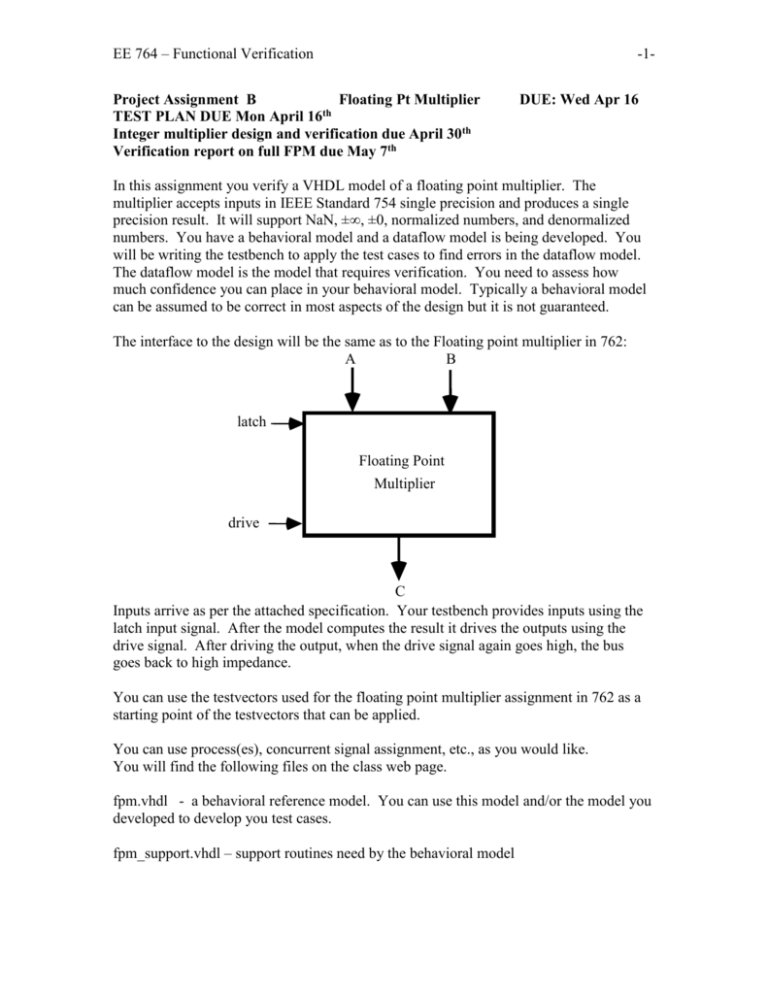
EE 764 – Functional Verification -1- Project Assignment B Floating Pt Multiplier th TEST PLAN DUE Mon April 16 Integer multiplier design and verification due April 30th Verification report on full FPM due May 7th DUE: Wed Apr 16 In this assignment you verify a VHDL model of a floating point multiplier. The multiplier accepts inputs in IEEE Standard 754 single precision and produces a single precision result. It will support NaN, ±∞, ±0, normalized numbers, and denormalized numbers. You have a behavioral model and a dataflow model is being developed. You will be writing the testbench to apply the test cases to find errors in the dataflow model. The dataflow model is the model that requires verification. You need to assess how much confidence you can place in your behavioral model. Typically a behavioral model can be assumed to be correct in most aspects of the design but it is not guaranteed. The interface to the design will be the same as to the Floating point multiplier in 762: A B latch Floating Point Multiplier drive C Inputs arrive as per the attached specification. Your testbench provides inputs using the latch input signal. After the model computes the result it drives the outputs using the drive signal. After driving the output, when the drive signal again goes high, the bus goes back to high impedance. You can use the testvectors used for the floating point multiplier assignment in 762 as a starting point of the testvectors that can be applied. You can use process(es), concurrent signal assignment, etc., as you would like. You will find the following files on the class web page. fpm.vhdl - a behavioral reference model. You can use this model and/or the model you developed to develop you test cases. fpm_support.vhdl – support routines need by the behavioral model EE 764 – Functional Verification -2- fpmvectors - a list of the input stimulus for the floating point multiplier that can be used for reference. fpa_df_v3.vhdl – the dataflow model that needs to be verified – Will be available soon. _______________________________________________ You will work in groups of two for this assignment. Documents Due: 1. A Verification Plan – The plan for verification of this unit. Turn in a test plan that details the test methodology to be employed and the test to be applied to the model. Explain why these are the test vectors and the coverage of the design that is expected. 2. Design and Verification of a integer multiplier for use in the FPM. INPUTS – a and b are 24 bits each, unsigned OUTPUTS – a 48 bit output, unsigned Submission items – - VHDL code for your multiplier - VHDL code for the testbench to verify the multiplier - A testplan and verification report for the sub-unit 2. A Verification Report - FPM A report that detail the accomplishment of the FPM Verification Plan. It will have appropriate listings showing the results of simulation and how the results were checked. How the results are to be checked should have be explained in the test plan. Part of this report is an appendix that has: A copy of the VHDL code of the testbench. A copy of all the test vectors and their expected result. Appropriate waveform displays. EE 764 – Functional Verification -3- Project B – Addendum – Floating Point Addendum The situation has arisen at your company that the design team has not yet quite completed the design model. Management has decided that to meet schedule, the verification team with both verify what has been completed and assist the design team by adding in the final function of handling the uncovered cases of denormalized results. The code for the latest version of the code produced by the design team if on the webpage and in a file named – V3 FPM df Model.vhdl Add the code the handle the result situation where the result exponent is positive but the multiplication result has a leading 1 located at some point to the right of the binary point. CLEARLY delineate all code that you add both within the executable code and SIGNAL declarations. A test file fpmvectors is also available and has some specific test cases at the end that test multiplication of 25 * denormalized and 100*denormalized, where the denormalized number keeps getting smaller. In some of these cases the correct result (not given) will be a normalized number. In other cases, the result will be a denormalized number. Files provided: V3 FPM df Model.vhdl – VHDL code of the synthesize-able model. The model that needs to be verified. V2 fmpvectors – transaction vectors that ends with 25 * several denormalized numbers and 100 * several denormalized numbers. These are the specific cases not yet implemented and that the hardware does not cover. testread.vhdl – the testbench which reads the transactions from the vector file and applied them to the model.
